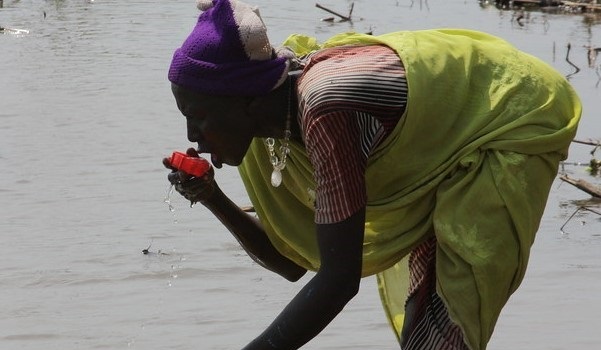If you live in a place like Southampton, you would appreciate the importance of having safe water. The reason is that the city may have hard and contaminated water, which makes it difficult to use and relatively unsafe for drinking unless you follow strict measures to soften and make it potable.
Most of the earth’s surface is covered by bodies of water but the most important factor is to have access to a clean source that every living organism can drink. For us humans, we do more with it than drink it, including ensuring proper hygiene, which makes us the most dependent on this precious natural resource.
But there are many human activities that pose a threat to access to clean water for all living organisms. Knowing what they are and how to curb them will go a long way in ensuring we preserve what’s available. Let’s see a few ways to make water safe for use. You can click here for more information on proper sanitation and health.
1. Don’t Throw Out Hazardous Waste
Many times, when people are decluttering or moving to a new place, you see electronics and other items carelessly disposed of. Some leave them on the sides of the streets or throw them into the garbage cans without sorting them for proper disposal.
From another angle, you will find factories and businesses that dispose of liquid hazardous waste products into bodies of water instead of carefully storing for proper disposal. These cause contamination, even if they don’t directly go into the systems that we see. The acid and chemicals leak into the earth and find their way into the sources. Eventually, they damage our water, making it unsafe for use, even for the smallest living things and plants.
2. Dispose of Trash Properly
This is not about hazardous waste but the everyday waste we throw out. Littering can negatively affect waterways and pollute the water we use. This pollution might not happen immediately but over time, even when factories and businesses carefully dispose of waste products, littering will be a major source of contaminants in waterways. Therefore, we must be mindful of how we throw out trash.
Ensure you have a garbage bin that can hold the amount of trash from your household, office, business, restaurant and other facilities. Sort the garbage to separate perishable from imperishable and sweep up everything that around that area into the bin. Ensure proper disposal and keep the environment clean. It starts with one person doing the right thing all the time.
3. Keep Your Hands Clean

Before the COVID-19 pandemic, there was a laissez-faire attitude toward personal hygiene everywhere. For example, many people did not think much about washing their hands after using the restroom or when they come in from the outdoors.
If you go out and come in, it’s imperative that you wash your hands, even if you didn’t use the restroom. You touch various surfaces, money and other things that people have touched, so washing under running water with mild soap is non-negotiable. This applies even when you are home; various surfaces may have dirt, soiling your hands.
If your job entails coming in constant contact with water and food for people, such as in a restaurant or food packaging plant, your level of hygiene should be high. Make it a duty to wash your hands as regularly as possible or use a WHO-approved hand sanitizer. This resource, https://www.health.state.mn.us/, explains the most important times to wash hands.
4. Use the Right Cleaning Agents
We live in a time when people are becoming more conscious of environmental friendliness. That means, among other things, holding manufacturers of household cleaning agents accountable for the ingredients they put in them. Many cleaning products contain chemicals that are detrimental to the environment, adding to the contamination of water sources over time.
But with eco-friendly products, you have options that thoroughly clean your homes without damaging the environment. Look out for these products because you contribute to cleaner water for all living things and a safer environment by using them.
5. Regularly Maintain Your Vehicles
One of the biggest contributors to contaminated water and air pollution is the transport industry. The release of gasses into the air harms the ozone layer and affects other aspects of the environment.
It can even affect the quality of indoor air, although certain companies can handle these indoor air issues. Visit totalwater.co.uk to learn more about checking and fixing this problem. But when a vehicle is not regularly and properly maintained, it can leak fluids that flow into nearby water sources. Plants and smaller animals are the first to suffer the contamination, leading to less available foods for humans.
Over time, the problem only increases and affects major water bodies if it is not curbed. That is why proper maintenance helps to keep the vehicles running and in good condition so they don’t leak oil or any other fluid that can damage the earth.
Conclusion
Being conscious of your environment and how your activities can contribute to contamination over time makes you responsible with waste disposal, cleaning products and activities, equipment and vehicle maintenance, and other aspects of daily living. Potable water is precious for all living things and the ecosystem can’t survive without it. Therefore, you must take steps to be part of the solution as we preserve the available sources, one at a time.




























